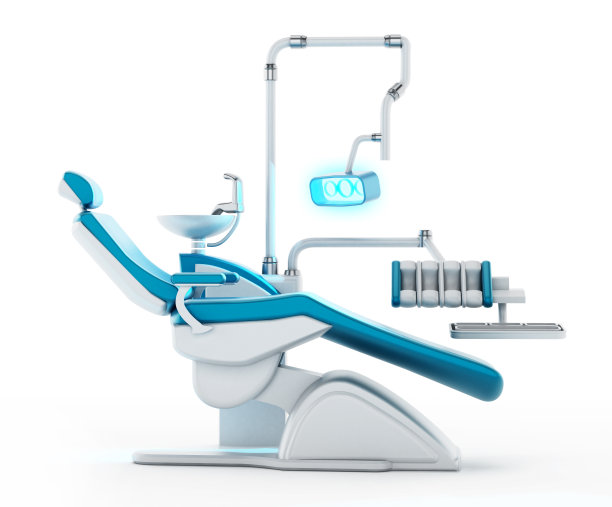Summary: Dental fillings are crucial for restoring damaged teeth, but their success largely depends on several essential precautions taken before, during, and after the procedure. This article explores four key aspects to ensure the longevity and efficiency of your dental filling: choosing the right dentist and materials, maintaining proper oral hygiene, adhering to dietary guidelines, and scheduling regular dental check-ups. By following these guidelines, patients can significantly enhance the effectiveness of their fillings, leading to prolonged retention and overall dental health.
1. Choosing the Right Dentist and Materials

The foundation of a successful dental filling procedure lies in selecting a qualified dentist. A skilled professional will not only perform the filling but will also diagnose the problem accurately and recommend the best material for your specific needs. Different types of filling materials such as amalgam, composite, and glass ionomer offer varying advantages, which your dentist can help you navigate.
Moreover, the quality of the materials used for the fillings cannot be overstated. High-quality filling materials are crucial for durability and resisting wear over time. Dentists often recommend specific brands that have a proven track record to ensure that the filling will last longer and have fewer chances of failure.
2. Maintaining Proper Oral Hygiene
Oral hygiene plays a pivotal role in the longevity of dental fillings. Patients should establish a comprehensive oral care routine that includes brushing at least twice a day and flossing daily. This routine removes plaque and food particles that could compromise the integrity of the filling.
Additionally, using fluoride toothpaste can help strengthen both your teeth and existing fillings. Fluoride has remineralizing properties that can reinforce your dental structures. Furthermore, consider using an antibacterial mouthwash as an added step to prevent bacterial buildup, which could otherwise lead to decay around the filling.
Implementing and maintaining good hygiene habits after the procedure can optimize the longevity of your fillings. Regularly monitoring your oral health contributes significantly to preventing complications that may lead to the need for replacement fillings sooner than expected.
3. Adhering to Dietary Guidelines
Your diet also plays a critical role in the longevity of a dental filling. After receiving a filling, it’s advisable to avoid hard and sticky foods for at least 24 hours. These foods can exert excessive pressure on newly placed fillings, potentially damaging them before they set correctly.
Moreover, try to limit sugary foods and beverages that contribute to cavity formation. Even with a filling in place, excessive sugar consumption can lead to decay around the filling, undermining its purpose. Opt for a well-balanced diet rich in fruits, vegetables, and whole grains to support overall dental health.
If you’re unsure about what foods to avoid post-procedure, consult your dentist for personalized dietary recommendations. The right dietary choices can significantly enhance the effectiveness and lifespan of your dental fillings.
4. Scheduling Regular Dental Check-ups
Regular dental check-ups are instrumental in ensuring the success of dental fillings over the long term. These visits allow your dentist to assess the condition of your fillings and identify any signs of wear or decay that could compromise their effectiveness. Proactive monitoring helps in addressing issues before they become significant problems.
Typically, it’s advisable to schedule a check-up every six months. However, individuals with specific dental concerns may need to visit more frequently. During these appointments, your dentist will perform a thorough cleaning, which contributes to better oral health and enhances the longevity of dental work.
Moreover, during regular check-ups, your dentist can offer preventive treatments, such as fluoride varnishes, to bolster the longevity of existing fillings. Keeping up with these appointments ensures that your dental care is comprehensive, reducing the risk of complications down the line.
Summary: Ensuring the success and longevity of your dental filling involves multiple factors. Selecting the right dentist and materials forms the foundation of effective treatment, while proper oral hygiene and dietary considerations further extend the lifespan of your fillings. Regular dental check-ups enable early detection of potential issues, thereby safeguarding your oral health. Following these guidelines will help you make the most of your dental fillings and maintain a beautiful smile for years to come.
This article is compiled by Vickong Dental and the content is for reference only.
Vickong Dental
Vickong Dental is a large medical group established in Hong Kong in 2008 by professors from well-known medical universities in Guangdong and Hong Kong, as well as medical doctors from key national '985' universities (including Master's supervisors and senior professors). The chain of branches brings together expert dentists with PhDs and Master's degrees from Hong Kong and Mainland China, committed to providing high-quality dental treatment.
"Vickong Dental Practices the University Motto of 'Healing and Serving Society,' with a Stable Operation for Sixteen Years. It Has Been honored with Hong Kong Enterprise Leaders's Choice,' and is a Global Trusted Implant Center for the Nobel Implant System. Recommended by Hong Kong Metro Broadcast and Guangdong Television, it Serves Customers from Over Thirty Countries and Regions, Gaining the Trust and Favor of Citizens from the Guangdong-Hong Kong-Macau Greater Bay Area and Surrounding Cities.

Thousands of customers' unanimous praise
The most recognized and highly recommended dental service by customers in the Guangdong-Hong Kong-Macau Greater Bay Area
We Ensure You Receive Detailed Care and Attention Here
Hong Kong standards, Shenzhen prices, Your Trusted English-speaking dentists

Vickong Dental Medical-Grade Instrument Disinfection Process
Vickong Dental Medical-Grade Instrument Disinfection Process

Vickong Dental Chain: A Warm and Comfortable Environment for Treatment






Appointment Hours

Q&A
Why choose Vickong Dental?
Vickong Dental practices the university motto 「Medicine to Benefit Society」, with each branch bringing together highly qualified dentists with doctoral and master’s degrees from Hong Kong and the Mainland, and has maintained seventeen years of steady operation。Recipient of 「2024 Hong Kong Enterprise Leaders Brand」, 「2025 Hong Kong Enterprise Leaders Brand」, a Nobel Biocare Global Trusted Implant Center, and a brand recommended by Metro Radio Hong Kong and Guangdong TV。
To date, we have served customers from more than thirty countries and regions,earning exceptionally high word-of-mouth recognition and trusted recommendations from residents across the Guangdong-Hong Kong-Macao Greater Bay Area and surrounding cities
We have eight major branches in Zhuhai、Shenzhen,and a consultation and service assurance center in Hong Kong,so you can book a free consultation at any time for any questions,which is very reassuring.
If I do not accept the quotation after the CT scan, will I be charged??
No! As long as the actual treatment has not started, you will not be charged any fees.
Will there be any additional charges during the treatment process?
No, there won’t be any additional charges. Before treatment begins, we will clearly explain the treatment plan and its corresponding fees. Only after the patient agrees and signs the consent form will we proceed with the dental service.
Can I pay in Hong Kong dollars?
Yes. Vickong Dental accepts payment in Hong Kong dollars. The amount will be converted based on the exchange rate of the day, and the applicable rate will be clearly communicated to you in advance.
Can I reschedule my appointment at any time?
Yes. Please contact us via **WeChat** or **WhatsApp** as early as possible, providing your original appointment time and details, along with your preferred new date and time slot for rescheduling.













